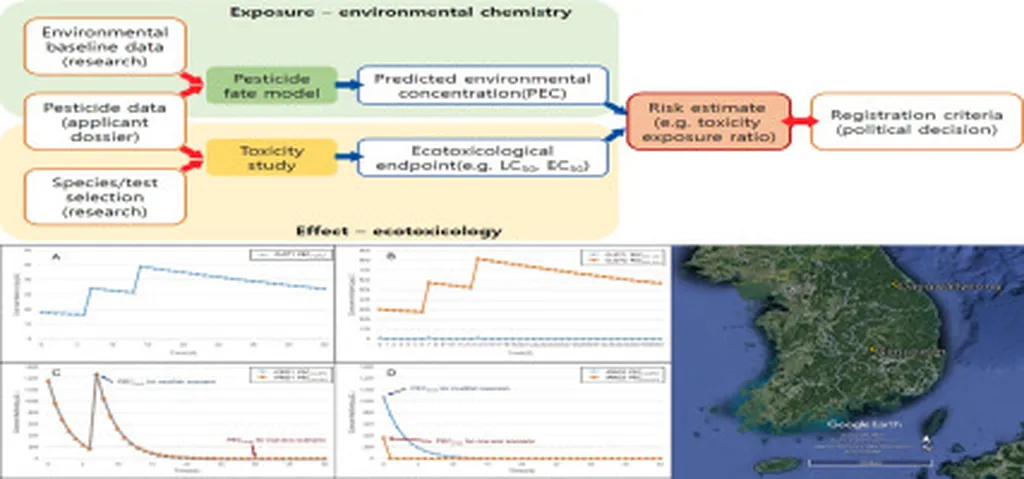In the heart of Seoul, researchers at Seoul National University are unraveling the intricate biochemical impacts of a widely used pesticide, α-cypermethrin, on aquatic life. Led by Hang-Ji Ok from the Department of Agricultural Biotechnology, this groundbreaking study employs a targeted metabolomics approach to shed light on the metabolic disruptions induced by α-cypermethrin in zebrafish, a model organism for environmental toxicology.
The study, published in the journal ‘Toxics’ (which translates to ‘Toxins’ in English), reveals that α-cypermethrin, known for its potent insecticidal efficacy and low mammalian toxicity, has significant metabolic effects on non-target aquatic organisms. “Our findings provide a mechanistic understanding of how α-cypermethrin exposure affects vertebrate metabolism at the sublethal level,” Ok explains. This understanding is crucial for ecological risk assessment and pesticide regulation.
The research team first determined the acute toxicity of α-cypermethrin to establish sublethal exposure concentrations. They then exposed adult zebrafish to these concentrations for 48 hours in a controlled flow-through system. Using GC-MS/MS-based analysis, they quantified 395 metabolites, revealing clear dose-dependent metabolic alterations at two time points. Multivariate statistical models, including principal component analysis (PCA) and partial least square-discriminant analysis (PLS-DA), were employed to interpret the complex data.
The study identified disruptions in several key metabolic pathways, including glycolysis, glycerolipid metabolism, amino acid turnover, and glutathione pathways. Notably, the depletion of glutamate and associated reductions in GABA (4-Aminobutanoate) and TCA (Tricarboxylic acid) cycle intermediates suggest oxidative stress-induced metabolic bottlenecks. “These metabolic changes indicate that α-cypermethrin exposure can lead to significant biochemical stress in aquatic organisms,” Ok notes.
The implications of this research are far-reaching. Understanding the metabolic impacts of pesticides on non-target organisms is essential for developing more ecologically friendly agricultural practices. “Our study demonstrates the utility of metabolite-level biomarkers for environmental monitoring,” Ok says. This approach could revolutionize how we assess the ecological impact of pesticides and other environmental contaminants.
Moreover, the findings contribute to a systems-level understanding of how sublethal pesticide exposure affects vertebrate metabolism. This knowledge is invaluable for improving ecological risk assessment and pesticide regulation, ensuring that agricultural practices are both effective and sustainable.
As the world grapples with the challenges of feeding a growing population while minimizing environmental impact, studies like this one are more important than ever. By providing a deeper understanding of the biochemical effects of pesticides, this research paves the way for more informed decision-making in agriculture and environmental policy. The study not only highlights the need for careful consideration of pesticide use but also offers a promising avenue for future research in metabolomics and environmental toxicology.

